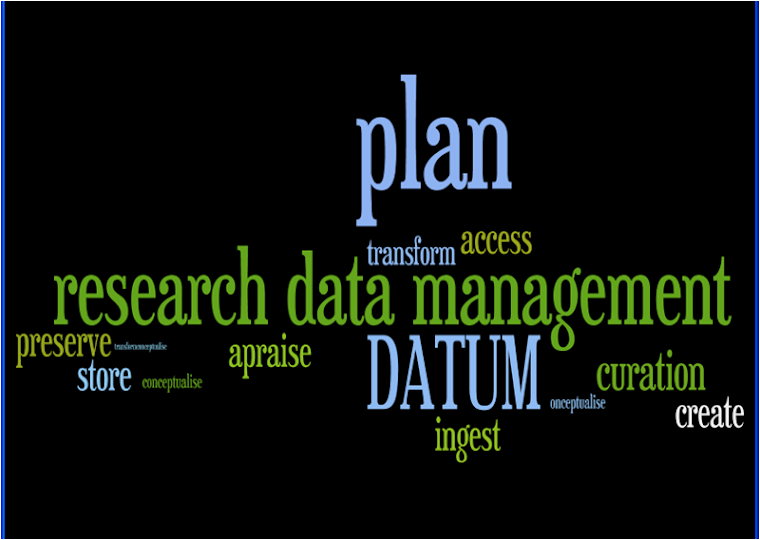The Data Management Plan (DMP) template used for the DATUM in Action project was the one we developed for our previous DATUM in Health project (see http://www.northumbria.ac.uk/sd/academic/ceis/re/isrc/themes/rmarea/datum/health/materials/session1/ for a copy), which was in turn developed from the Digital Curation Centre’s (DCC) template (see https://dmponline.dcc.ac.uk/documents). As we worked with the EU Project researchers we made further amendments to our DMP comprising:
- developing further guidance and making this available as a separate document linked to the template
- cutting down on duplication within the template by cross referencing, so information only needed to be recorded once
- cutting down on duplication with other researcher activities (e.g. ethics approval forms) by asking for the locations of relevant documents held in paper/electronic form rather than repeating this information within the DMP
- providing space for noting actions that needed to be taken: making the DMP a living document
The first version of the EU Project’s DMP has now been completed, and further versions will be produced as the EU project develops over time. The data requirements identified in the first action cycle of DATUM in Action have been embedded into the DMP.
A major concern expressed by the EU Project researchers was that completing a DMP was a demanding task, and that for many projects researchers would feel that the effort and time required for a DMP could be better spent on conducting the research itself. Projects are funded from a range of sources (most of which do not currently require DMPs), and vary in size from small scale, single researcher projects to large scale, multiple-researcher projects. They therefore need different levels of data management. If data management is to be promulgated for all researchers and all research projects than DMP-lite templates will be necessary. We have added a front page to our DMP template so the sections can be seen at a glance, and it will be easy for the researcher to identify the sections that are relevant / not relevant to a specific project. Automation of a DMP would also be helpful to achieve this.
However, the EU Project researchers have already benefitted from the DMP process as they have learnt new aspects about managing their research data and records.

No comments:
Post a Comment